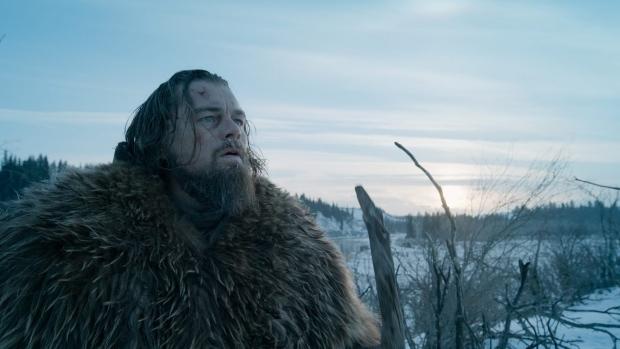If anything can be said about freshly-minted critical darling Alejandro G. Iñárritu, it’s that his films are always shot with immaculate precision.
Together with cinematographer Emmanuel Lubezki, Iñárritu’s propensity for tracking shots and close-ups creates a claustrophobic sense of realism, forcing the audience to get lost in the characters’ struggles. While the clunky screenplay and incessant dialogue of “Birdman” overshadowed the excellent cinematography, “The Revenant” goes careening in the opposite direction by keeping the dialogue to a minimum, and making nature one of the main characters.
In stark contrast to “Birdman,” last year’s Oscar winner for Best Picture and a snappy, caustic dark comedy propelled by a snare drum score, “The Revenant” is mostly a mood piece following Hugh Glass, played by Leonardo DiCaprio, through the wilderness on a quest for revenge against those who wronged him and left him for dead.
Iñárritu plays fast and loose with the facts of the true story of Glass, who was indeed abandoned in the woods after being mauled by a bear. But despite that, the film’s brutal realism is really what propels it above and beyond “Birdman,” with many moments not for the faint of heart. The one big complaint about “The Revenant” is that it is much, much longer than it really needs to be, which does diminish the impact of the harshly powerful ordeal Glass goes through.
The length is the big problem, with one fairly extraneous subplot about a Native American chief hunting for his abducted daughter, doing little else but providing an excuse for the movie to continue.
But overall “The Revenant” is breathtakingly gorgeous. Shot entirely with natural light on location, Iñárritu and Lubezki make nature DiCaprio’s main supporting player — a character in its own right for Glass to play off of and interact with. Accepting a few supporting characters who pop in and out of the movie, Glass spends a lot of time alone, and a lot of his dialogue would probably be subtitled as “sounds of exertion.” But the closeness and intensity of the cinematography make the audience ignore that.
The easiest way of describing “The Revenant” is a character study that forgot to study, but that’s not a detriment to its quality. The little you learn about Glass serves as further motivation for his ultimate vengeance, but that’s OK. If the movie was about half an hour shorter, it would be the runaway favorite for Best Picture — but the extraneous stuff drags it down to merely “good.”
It’s definitely not quite as critically acclaimed as “Birdman” was, but few movies are. With that said, “The Revenant” is the superior film. It simply feels more real, less calculated and far less pedantic.
Iñárritu seemed happy to look down on the rest of the artistic world in “Birdman” and proclaim his superiority, but his style feels much more at home in a dialogue-light piece like “The Revenant.” The sweeping tracking shots and penchant for realism thrive in this brutal drama, which will definitely be in the awards conversation.
Even if it is too long.


